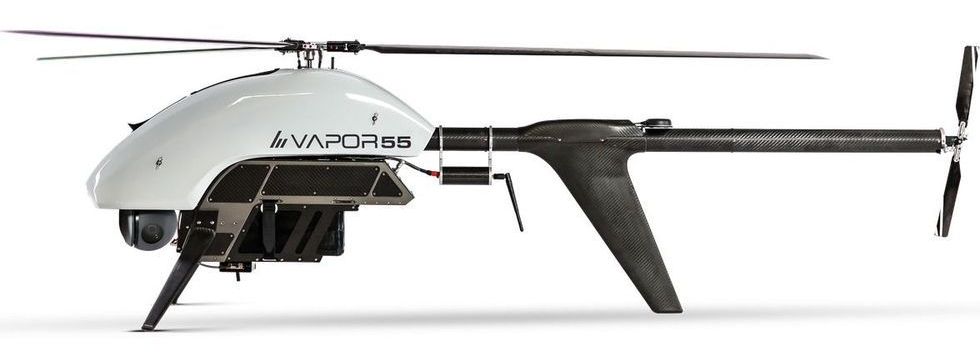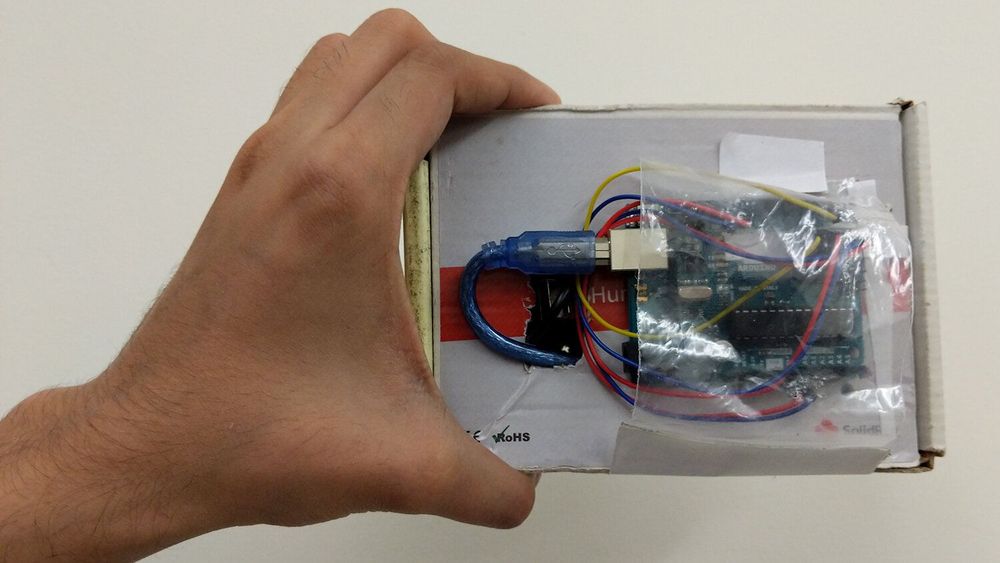Giving a new meaning to fast food.
🔎 Learn more about drone delivery: https://wef.ch/2qeKHag
Giving a new meaning to fast food.
🔎 Learn more about drone delivery: https://wef.ch/2qeKHag
For more information on Jay Tuck, please visit our website www.tedxhamburg.de
US defense expert Jay Tuck was news director of the daily news program ARD-Tagesthemen and combat correspondent for GermanTelevision in two Gulf Wars. He has produced over 500 segments for the network. His investigative reports on security policy, espionage activities and weapons technology appear in leading newspapers, television networks and magazines throughout Europe, including Cicero, Focus, PC-Welt, Playboy, Stern, Welt am Sonntag and ZEITmagazin. He is author of a widely acclaimed book on electronic intelligence activities, “High-Tech Espionage” (St. Martin’s Press), published in fourteen countries. He is Executive Producer for a weekly technology magazine on international television in the Arab world. For his latest book “Evolution without us – Will AI kill us?” he researched at US drone bases, the Pentagon, intelligence agencies and AI research institutions. His lively talks are accompanied by exclusive video and photographs.
This talk was given at a TEDx event using the TED conference format but independently organized by a local community.


The Eagle has landed — the Flirtey Eagle drone, that is.
Reno-based drone delivery company Flirtey showed off the new drone that it will be using once it starts to deliver packages by air later this year. The company unveiled its drone on Monday at the National Press Club in Washington, D.C.
Looking like a white, squarish igloo with four propeller arms, the Flirtey Eagle can house a package inside its body, which it then lowers with a tether after it arrives at its designated delivery spot. The Eagle boasts a sizable payload and can accommodate about 75% of all packages that are sent to consumers for last-mile delivery, the company said.

The night sky in Guiyang, the capital city of southwest China’s Guizhou province, has been a little bit brighter since Friday as 526 drones lit up the sky with a spectacular performance daily.
http://www.cctvplus.com/news/20190527/8111716.shtml#!language=1
Welcome to subscribe us on:
Facebook: https://www.facebook.com/NewsContent.CCTVPLUS
Twitter: https://twitter.com/CCTV_Plus
LinkedIn: https://www.linkedin.com/company/cctv-news-content
Instagram: https://www.instagram.com/cctvnewscontent/
Video on Demand: www.cctvplus.com
If you are in demand of this video footage, please contact with our business development team via email: [email protected]
Where to get the GAIA 160-Hybrid drone: https://www.foxtechfpv.com/gaia-160-hybrid-hexacopter-arf-combo.html
We did it!!!!!!
Broke the Flight Time Record!!!!!
This is a historic moment for UAV drone.
Foxtech GAIA 160-Hybrid has made aviation history by completing the 100km crossing sea bay flight in 180 minutes.
On 9th September, Foxtech team successfully completed the crossing sea bay flight with GAIA 160-Hybrid from changdao to dalian. GAIA 160-Hybrid took off from a yacht in changdao and landed on a coast of Dalian, the total range is 100km, this is the longest single flight of a hexacopter in the World! Foxtech GAIA 160-Hybrid hexacopter broke the flight time record!
FOXTECH GAIA 160-Hybrid hexacopter has an onboard 2000w generator that offers plenty of power to 6 very high efficiency motors to ensure a long flight time. It is installed with redundancy flight controllers, three GPS and a full range of optional equipments like RTK GPS, 20km datalink, parachute, secondary radio control to make this drone very reliable and very safe.
Foxtech team arrived in changdao on 5 September, but due to the heavy wind and bad weather conditions the flight was actually delayed, we have to stop the mission and wait for another good weather to try again. Finally, Foxtech team was ready to make their attempt on 9 September. Departing from a yacht in changdao, weather was cooperative and all was going well.
Foxtech GAIA 160-Hybrid successfully took off from the yacht, with GPS guidance and automated flight, the drone could fly independently. And the drone was accompanied by a yacht staying within a range of 500 meters, so that our operator could control the aircraft at any time. During the flight, the wind was rising, force 7 grades, the wind speed is about 17m/s. But with the robust stability of GAIA 160-Hybrid and rich experience of our technicist, GAIA 160-Hybrid overcame the adverse weather conditions, and just over 3 hours after takeoff, GAIA 160-Hybrid landed safely in a coast of Dalian.
The journey was filled with challenges, because any type of adverse wind will have a
severe impact on the drone. So this time the successful flight dramatically proved the.
reliability and potentials of GAIA 160-Hybrid, proved that Foxtech GAIA 160-Hybrid is a high-performance flying platform which is able to adapt many complicated environment, especially the strong breeze and gale weather. A longer flight time coupled with good stability of GAIA 160-Hybrid opens a wide range of new commercial possibilities for businesses such as inspection of offshore platforms, search and rescue, power line inspection etc.

Could physics help people with epilepsy? That’s the question tackled by Louis Nemzer, a physicist at Nova Southeastern University, in the September 2019 issue of Physics World magazine, which is out now in print and digital formats.
He thinks that machine learning and real-time monitoring of the brain could give people with epilepsy live information about how much at risk they are of an imminent seizure – and is even developing a smartphone app to help them in daily life.
Elsewhere in the issue, Peter Martin and Tom Scott from the University of Bristol describe how they’ve used drones to map radiation levels at the Chernobyl plant, which you can also read on this website from 2 September, while Kate Brown from the Massachusetts Institute of Technology examines the health impact of Chernobyl fall-out.

Researchers from North Carolina State University have developed a technique for measuring speed and distance in indoor environments, which could be used to improve navigation technologies for robots, drones—or pedestrians trying to find their way around an airport. The technique uses a novel combination of Wi-Fi signals and accelerometer technology to track devices in near-real time.
“We call our approach Wi-Fi-assisted Inertial Odometry (WIO),” says Raghav Venkatnarayan, co-corresponding author of a paper on the work and a Ph.D. student at NC State. “WIO uses Wi-Fi as a velocity sensor to accurately track how far something has moved. Think of it as sonar, but using radio waves, rather than sound waves.”
Many devices, such as smartphones, incorporate technology called inertial measurement units (IMUs) to calculate how far a device has moved. However, IMUs suffer from large drift errors, meaning that even minor inaccuracies can quickly become exaggerated.